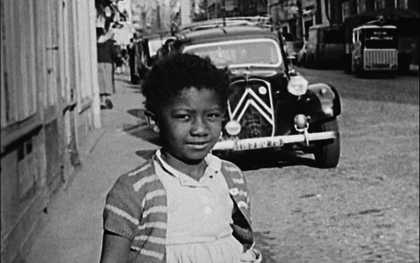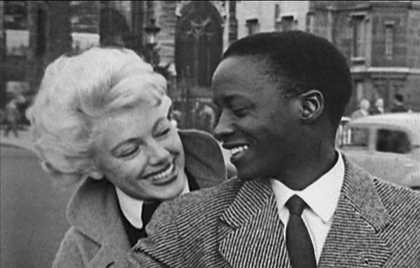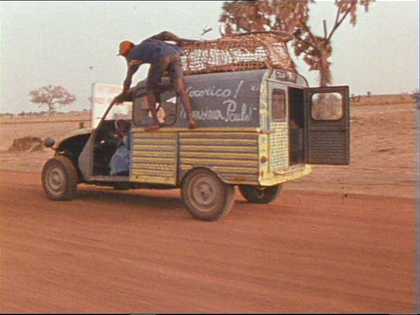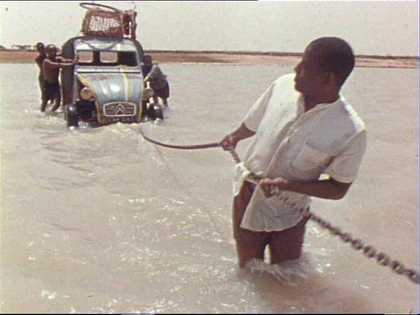These two âethno-fictionsâ reflect on the critical legacy of ethnographic cinema and the relationship between France and Africa.
Paulin Soumanou Vieyraâs pioneering filmÌýAfrique surÌýSeineÌýshows Paris in the 1950s from the perspective of a group of African immigrants, whereasCocorico! Monsieur Poulet,Ìýmade by the international collaborative team of Jean Rouch, Damouré Zika and Lam Dia, depicts an absurd journey across Niger.
Afrique surÌýSeine
Directed by Mamadou Sarr and Paulin Soumanou Vieyra, France 1955, 35mm film transferred to video, 22 min
French with English subtitles
Afrique sur SeineÌýfocuses on a community of Africans living in Paris, observing French society as colonial ethnographers had observed Africa, reversing the perspective, and âdecolonizingâ their look and their mind.
While Africans were banned from making films in the French colonies prior to independence, Mamadou Sarr and Paulin Soumanou Vieyra were granted permission to shootÌýAfrique sur Seine, in Paris. Both were members of the African Cinema Group, producing films in a colonial era as a gesture of resistance.
With the support of the CinémathÚque Afrique of the Institut Français â Paris
Cocorico! Monsieur Poulet
Directed by Dalarou (Damouré Zika, Lam Dia, Jean Rouch), France/Niger, 1974, 90 min
French with English subtitles
Cocorico! Monsieur PouletÌýfollows three poultry sellers on a trip across the bush, attempting to deliver a load of chickens to a market in Niamey.
The film credited to Dalarou, a name adopted by the collaborative team of Jean Rouch, Damouré Zika and Lam Ibrahim Dia, is based on Diaâs own experience as a poultry seller, and meant to depict the lives of marginal Africans. The filmâs whimsical, absurdist plot is driven by uniquely African references, including the influence of magic.
This unforgettably jubilant and often surreal road movie is a prime example of the collaborative fictions Rouch made with his African partners.




